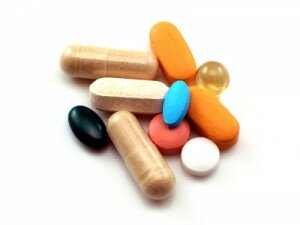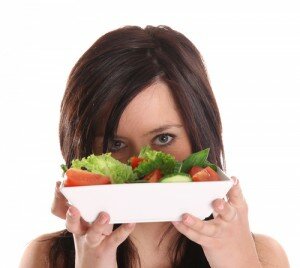 You can definitely improve your health with a good diet, but you can help to combat the signs and effects of aging too. There is a way to eat to help keep your body young inside and out for as long as possible. You can make these changes right now and you will start to reap the benefits right away. While consistency is key, even a few of these a day will help to make a difference.
You can definitely improve your health with a good diet, but you can help to combat the signs and effects of aging too. There is a way to eat to help keep your body young inside and out for as long as possible. You can make these changes right now and you will start to reap the benefits right away. While consistency is key, even a few of these a day will help to make a difference.
Fruits and Vegetables
When it comes to your fruits and veggies you want intense color. Think bright orange carrots, deep green spinach, bright blue blueberries and deep red raspberries. There are others, but you get the point about the color.
After looking at color you want to look for specific antioxidants and these include zinc, vitamin C and beta-carotene. These antioxidants can protect you from a variety of things, such as blindness, premature aging, macular degeneration, heart disease and cancer.
Red wine should be added here as well. Now, this means a single serving each day and not more. Red wines contain resveratrol and this is a compound associated with lowering your risk of a variety of age-related issues, such as cancer, premature aging and heart disease.
Whole Grains
Take all of your white flour items, such as white bread and white rice, and toss them. You want food that is brown and made from whole wheat and grains. Eating a variety of whole grains at least three times a day is known to help in keeping your blood vessels youthful and in great shape. You want to go for things like oats, barley, brown rice, quinoa and wheat. Since these are all also rich in fiber it will help to keep your digestive track humming along well too.
Fish
Fish are jam-packed with Omega-4 fatty acids and these are very important in keeping you young. They can help with preventing stroke, heart disease and maybe even Alzheimer’s disease. You only need to get two servings every week to reap the benefits. Some of the best fish include salmon, tuna and lake trout. If fish is not your thing then talk to your doctor about taking a supplement instead.
Dairy
Yes, you can and should have some dairy. Dairy tends to have high amounts of both vitamin D and calcium and these are critical for healthy bones. If your bones are not strong then you risk injury which could prevent you from being active and not being active can age you. Stick with low-fat dairy to keep your risk of heart disease and high cholesterol low.
Beans and Lentils
These are protein powerhouses and protein is a critical nutrient. You can eat these types of things as is, or add them to soups, salads and other dishes. You can help to prevent diabetes and heart disease when you eat these in place of fatty meats. Talk to your doctor about how much protein you need to strive for each day. This will help to ensure that you get what you need to maintain peak health.



![[Google]](/wp-content/plugins/easy-adsense-lite/google-light.gif)
